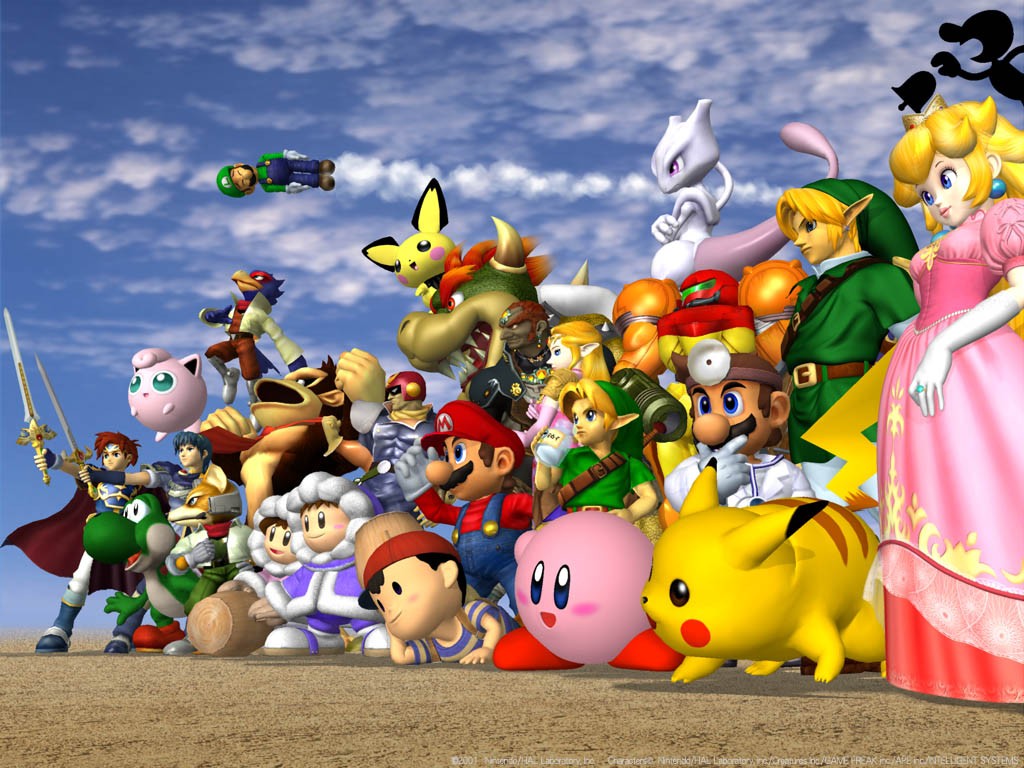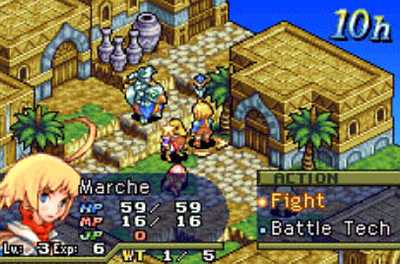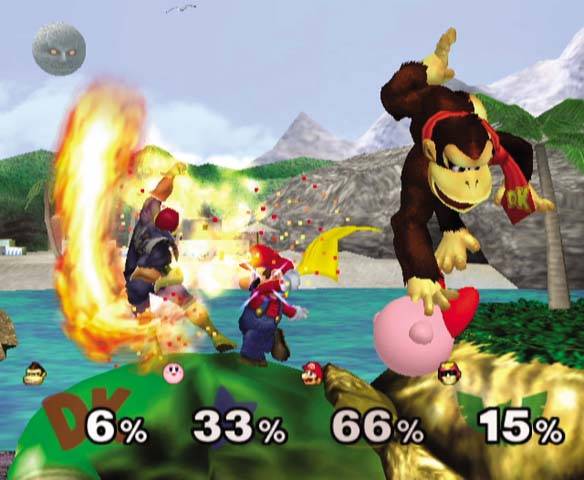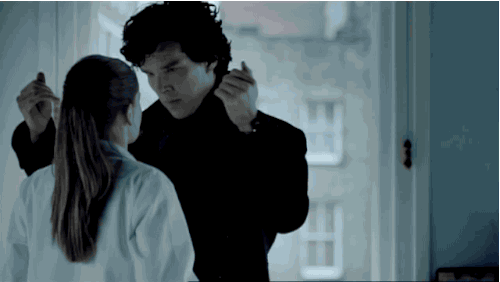Have I really only posted once this month? How embarrassing...this semester of school has so far been unreal with the amount of work that I've had piled on me. That and a lack of inspiration has been keeping me from posting here. However, a sudden bit of inspiration hit me when I caught a brief respite from the harsh world of comparative politics. While scrolling through the articles on Kotaku I found that one of their writers had brought up the question of "what the perfect game is". It is a daunting one for sure; how can we really know exactly what the perfect game is?
The answer to the question is that the perfect game is different for everyone. However, through my experience, what exactly would I define as the perfect game? After all, games come in such shapes and sizes. For example, Super Smash Bros. or Mario Kart could be considered perfect games because they have huge amounts of replay value and have remained relevant to this day. However, if you're playing those games alone, are they really that great? Then there are games such as Legend of Zelda: Ocarina of Time or Final Fantasy VII where fanboys shove down you're throats how amazing they think their favorite game is. Those games have fantastic stories and were great in their time, but do they really hold up as well against other games? Some might argue that a game like Minecraft which just allows one to flex their creative muscles is perfect in it's simplicity. Even so, I never found those games engaging or immersive. Even among games that I have played, I struggle to figure exactly what I would consider to be "perfect".
Batman: Arkham City, Xbox 360
 I love the Arkham games; if there was an immersive game experience, this is definitely it. Arkham City is my favorite of the bunch because it opened up the world, gave you a city to fly around in and let you just simply be Batman (or in my case, Catwoman). The game plays great, however, it doesn't entirely hold up throughout the game. The plot is a bit of a letdown, feeling more like a mashed together freakshow of Batman villains loosely connected by a plot. The extra features never really appealed to me either. Flinging around the city as Catwoman is certainly fun; but could I do that for hours on end? Probably not; so Arkham City is not our perfect game experience.
I love the Arkham games; if there was an immersive game experience, this is definitely it. Arkham City is my favorite of the bunch because it opened up the world, gave you a city to fly around in and let you just simply be Batman (or in my case, Catwoman). The game plays great, however, it doesn't entirely hold up throughout the game. The plot is a bit of a letdown, feeling more like a mashed together freakshow of Batman villains loosely connected by a plot. The extra features never really appealed to me either. Flinging around the city as Catwoman is certainly fun; but could I do that for hours on end? Probably not; so Arkham City is not our perfect game experience.
Sonic Adventure 2: Battle, Nintendo Gamecube
 This is where the rose tinted glasses begin to sink in. Sonic Adventure 2 is one of the most fun games I've ever played. Sure, it's plot was a bit convoluted, the voice cast is terrible, and the controls wonky, but the game itself remained so good. Extra levels gave it replayability as did the Chao Garden and it's simply fun to run around fast as either Sonic or Shadow. However, there's still a large part of the game that I barely even touched (the shoot em up levels and the treasure hunting missions). We play Sonic to run fast and while it's fun from time to time to play the other modes, it's not something that draws me back to the game. I'm here to play levels like "City Escape" and "Radical Highway". I love this game and I love replaying through it. The problem with SA2 is that it is clearly an imperfect game by conventional standards and obviously that means it can't be perfect.
This is where the rose tinted glasses begin to sink in. Sonic Adventure 2 is one of the most fun games I've ever played. Sure, it's plot was a bit convoluted, the voice cast is terrible, and the controls wonky, but the game itself remained so good. Extra levels gave it replayability as did the Chao Garden and it's simply fun to run around fast as either Sonic or Shadow. However, there's still a large part of the game that I barely even touched (the shoot em up levels and the treasure hunting missions). We play Sonic to run fast and while it's fun from time to time to play the other modes, it's not something that draws me back to the game. I'm here to play levels like "City Escape" and "Radical Highway". I love this game and I love replaying through it. The problem with SA2 is that it is clearly an imperfect game by conventional standards and obviously that means it can't be perfect.Discussion of this game will always lead back to games like Pokemon and other RPG's. Where exactly does one consider the game to end? Are the post game objectives worth dumping loads and loads of hours into in order to accomplish them? FFTA was a brilliantly executed game that I dumped loads and loads of time into when I was younger. There was nearly limitless combinations and ways that a player could succeed in the game and had a plot that was surprisingly deep for the games I played as a child. After the game was over, there was plenty of incentive to keep playing and I really wish I could have. Unfortunately, the game required to me to have a certain item that would allow me to progress through the game's final three side quests. I happened to have misplaced the item at some point during my playing of the game and had no idea that it would turn out to be so significant. Turns out that there was no possible way to recoup the item without cheats. Any game where it locks a significant portion of the game off to you because you lack certain items can't be considered perfect.
Super Smash Bros. Melee, Nintendo Gamecube
Super Smash Bros. Melee is a timeless game. It is one of the few games that you can break out at a party or when you have company over that everyone can play. Even people who are barely into video games have played a few rounds of Melee and even today it remains the gold standard of the franchise. However, like I said earlier, how much of the game do you really want to play though by yourself. Other than to unlock characters, the single player mode offers very little to the player. An infinitely fun game yes, but with nobody else around to play with, it quickly loses it's shine. Sure, the Adventure Mode is a fun thing to do every once in awhile and there's some neat challenges but the allure of those game modes doesn't last. By the time you've unlocked all the characters and Final Destination (the only stage that really matters) you pretty much have everything you need. Smash Bros. meant to be enjoyed with friends. A great game but not a complete experience.
Civilization V, PC
Quite simply, Civilization V is a phenomenal game. There's something great about a game that allows the player to leave their own imprint on it. Civ V is an immersive experience that can cause you to lose track of time. It's that way because there really is no "right" way to play it, the player can play which ever way they want. Take over the world? Why not? Make the Iroquois a world power? Why not? Cross Ghandi and have him plunge your Civ into nuclear winter? Why not? Civ V is probably the closest thing on this short list to perfection. After all, the experience changes just about every time you play based on what Civ you are and who is surrounding you. However, even with these variations in gameplay, Civ V does start to get a little boring. You start going through the motions, running your Civ becomes more like a chore than anything, you start realizing that you do the same things just about every game. Even so, it's still an entertaining game.
So there are five significant games that I have played through that have still stuck with me. Each comes close to being perfect but just misses in key areas. The criteria for a perfect game must be very high indeed. When judging a game today, it is the same way that one judges a movie, Tv show, or even a piece of art. What emotions does the game evoke from you and most importantly, was the experience of the game worth it? Games aren't simply about reaching point B from point A anymore. The games that have gotten this right and that can still hold up to games of a similar style are the ones that should be regarded as perfect. So, what would be my perfect game?
I'm not sure where to even start with this game because it really is perfect in so many different ways. It has everything that somebody could want from a video game: plot, great character, great dialogue, visuals, gameplay that is out of the world fun (and different to boot), and loads of things to explore outside the main story. Paper Mario is an RPG in a rather untraditional sense. It is able to perfectly blend together the platform elements of Mario that have made him such a video game icon and a unique style of turn-based combat that keeps the player engaged. At no point was Thousand-Year Door ever boring, it kept me engaged from beginning to end. The story takes you to the farthest reaches of the Mushroom Kingdom and even took you into space. Sure, it's the same old "Peach gets kidnapped" story that Mario has been dealing with since his introduction but it's given a twist as Bowser isn't the one responsible. In fact, we get to see a whole new cast of villains and the game is better off for it. Thousand-Year Door is also incredibly challenging, the type of game that actually gives you a sense of accomplishment when you complete it. However, an important distinction to make here is that it never felt frustrating. Every time I lost I simply felt driven to get past that part, never any sense of defeat. The ability to be challenging as a carrot on a stick to the player, rather than being challenging for sake of being a hard game is an undervalued trait in gaming.
 The place where Thousand-Year Door really show's it's polish is the character dialogues which are hold-your-sides funny at times. Rather than some RPG's, where the unskippable cutscenes are a drag because of bland dialogue and boring characters, Thousand-Year Door made every scene a must-watch event as you didn't really know what one character would say next. I've played through the game several times through at this point and this aspect of the game has never gotten old to me. I enjoy this game more and more each time I play through it. Not to mention that the game has tons of other things to keep you occupied. Thousand-Year Door is one of the few games that makes me want to earn 100% every time that I play. It's the back to back boss challenge near the end of the game, the slow grind of the Pit of 100 Trials, the expansive Mushroom Kingdom underground, and the want to keep boosting up your stats. No game has ever evoked that kind of drive out of me. It's the kind of game that I want to play again and again without ever getting stale. Thousand-Year Door is quite simply the best game I've ever played.
The place where Thousand-Year Door really show's it's polish is the character dialogues which are hold-your-sides funny at times. Rather than some RPG's, where the unskippable cutscenes are a drag because of bland dialogue and boring characters, Thousand-Year Door made every scene a must-watch event as you didn't really know what one character would say next. I've played through the game several times through at this point and this aspect of the game has never gotten old to me. I enjoy this game more and more each time I play through it. Not to mention that the game has tons of other things to keep you occupied. Thousand-Year Door is one of the few games that makes me want to earn 100% every time that I play. It's the back to back boss challenge near the end of the game, the slow grind of the Pit of 100 Trials, the expansive Mushroom Kingdom underground, and the want to keep boosting up your stats. No game has ever evoked that kind of drive out of me. It's the kind of game that I want to play again and again without ever getting stale. Thousand-Year Door is quite simply the best game I've ever played.














